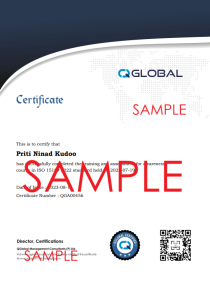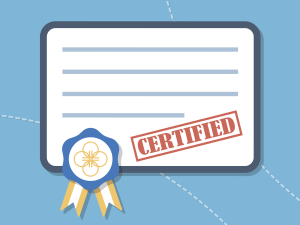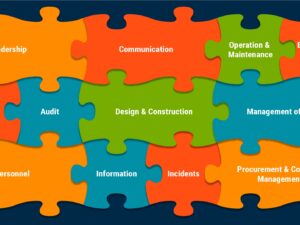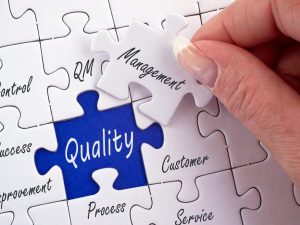HACCP Hazard Analysis & Critical Control Points – Level 2 lead implementer course
- Description
- Curriculum

An effective implementation is essential for organizations to maximize the performance and benefits of HACCP standards. HACCP level 2 lead implementer course is good for those who need an overview on the HACCP requirements, or those who will be involved in the implementation of HACCP practices within an organization.
HACCP level 2 implementation course will guide you through the implementation process by explaining the requirements of HACCP and how they can be applied using international best practices. Using a step-by-step approach, you will learn how to develop an implementation plan, create the necessary documentation, monitor the food safety management system, and achieve continual system improvement.
Who Should Attend?
- Anyone responsible for implementing HACCP standard
- Those who want to learn how to interpret the requirements of HACCP standard
- Managers or executives involved in delivering HACCP
- Heads of various departments in an organisation
- Anyone looking to gain skills and knowledge in the food safety management system to improve their career performance
- Jobseekers interested in understanding the best food safety management practices followed by the organisations
Key Benefits
- Understand concepts and importance of the HACCP
- Grasp the application of risk-based thinking, leadership and process management
- Interpret requirements of HACCP standard and its effective application for managing and improving the functioning of an organization through process approach.
- Understand and develop skills for implementation of management system to manage processes of the organization.
- Build stakeholder confidence by managing processes in line with the latest requirements
- Understand and develop problem solving skills
- Maintain and continually improve an organisation’s food safety management system
- Learn techniques to create and manage documents and records relevant to HACCP food safety management system, critical to the products and services delivered and those required to meet customer and regulatory requirements
- Learn skills in human resource management, supplier management, customer management, operations management, inventory management, laboratory management, production planning and logistics management to ensure compliance to HACCP food safety management system
- Learn to identify and mitigate internal and external food safety issues relevant to businesses
- Learn to identify stakeholder expectations on food safety performance and prepare action plans to fulfill them
- Learn to define and optimize the processes in your organisation
- Identify improvement objectives and plans to achieve them
- Develop an effective communication plan
- Learn to manage design and development activities to ensure compliance to HACCP food safety management system
Learning & Evaluation Method
This is a live and interactive course.
Once you purchase the course, our team will contact you to plan the training. No matter where you are located, we schedule the classes based on your convenience and time zone. You can plan to attend the training in sessions of 4 or 8 hr duration, based on how much time you can spend in a day.
Certification
There are increasing numbers of organizations, who prefer candidates those who have certain certifications from recognized programs. Certification demonstrates your commitment to superior professionalism, upholding industry standards, and continued learning. These merits can help boost your professional credibility and prestige within your own network, in your organisation, with your current clients, and when pursuing new business opportunities.
After the successful completion of the course and final exam, you will be awarded with a certificate of completion issued by QGlobal.
Your credentials will be made available in the global online directory and can be verified by anyone searching with the certificate number. Without doubt we can say that our training courses are well recognized and sought after by organizations across various geographies.
There is no expiry date for the certificate.
Buy for group
Are you planning to buy this course for a group? We have the best prices for you!
Select ‘Buy for Group’ option and add to the cart. You will get a discount of 60 – 75% for a group of up to 10 participants.
To make a group purchase, create your group name and add individual emails of up to 10 participants. Each participant will get the access to the course materials, exam and the certificate. We will arrange one live-online session for the entire group.
Total: 206 Courses View all
Total: 206 Courses View all
-
1Introduction to food safety standards and practices
-
2Introduction to Hazard Analysis and Critical Control Points (HACCP)
-
3Components of HACCP system
-
4Prerequisite program requirements (PRPs)
- Examples of hazards controlled by implementing PRPs
-
5PRP 01 – Food defense – biovigilence and bioterrorism
Controls for food defence
-
6PRP 02 – Product recall procedures
-
7PRP 03 - Rework
-
8PRP 04 – Training and supervision
-
9PRP 05 – Measures for prevention of cross contamination
-
10PRP 06 – Traceability
-
11PRP 07 – Storage and warehousing
-
12PRP 08 – Utilities – air, water, energy
-
13PRP 09 – Personal hygiene and employee facilities
-
14PRP 10 – Cleaning and sanitizing
-
15PRP 11 – Pest control
-
16PRP 12 – Waste disposal
-
17PRP 13 – Management of purchased material
-
18PRP 14 – Layout of premises and workspace
-
19PRP 15 – Equipment suitability, cleaning and maintenance
-
20PRP 16 – Construction and layout of building
-
21Regulatory requirements for food businesses
-
22HACCP – HACCP plan
-
23Implementing HACCP - Prerequisite programs (PRPs)
-
24HACCP Principles
-
25LI 01 Building the team
-
26LI 02 Conducting gap analysis
-
27LI 03 Preparing implementation plan
-
28LI 04 Creating awareness
-
29LI 05 Conducting training
-
30LI 06 Procuring documents
-
31LI 07 Creating management system manual
-
32LI 08 Creating policies and procedures
-
33LI 09 Creating forms and templates
-
34LI 10 Planning for certification
-
35LI 11 Implementation methodology
- Building the culture
- Plan-Do-Check-Act
-
36LI 12 Role of leadership in implementing the management system
- Leadership concepts
- Role of leaders in implementing the management system
- 12 Characteristics of team leaders and managers
-
37LI 13 Employee motivation and involvement
- Employee wants
- Achieving a motivated workforce
-
38LI 14 Obstacles in implementing the management system
- Inability to manage the change
- No planned review of the system
- Inadequate planning
- Not aligning the goals and matrices
- Poor commitment from top management
- Differences between departments and individuals
- Lack of awareness and not providing continuous training
- Poor documentation
- Inadequate monitoring, measuring and analysis of data and results
- Not paying attention to internal and external customers
- Failure to continually improve
- Failure to motivate and empower employees




























































































